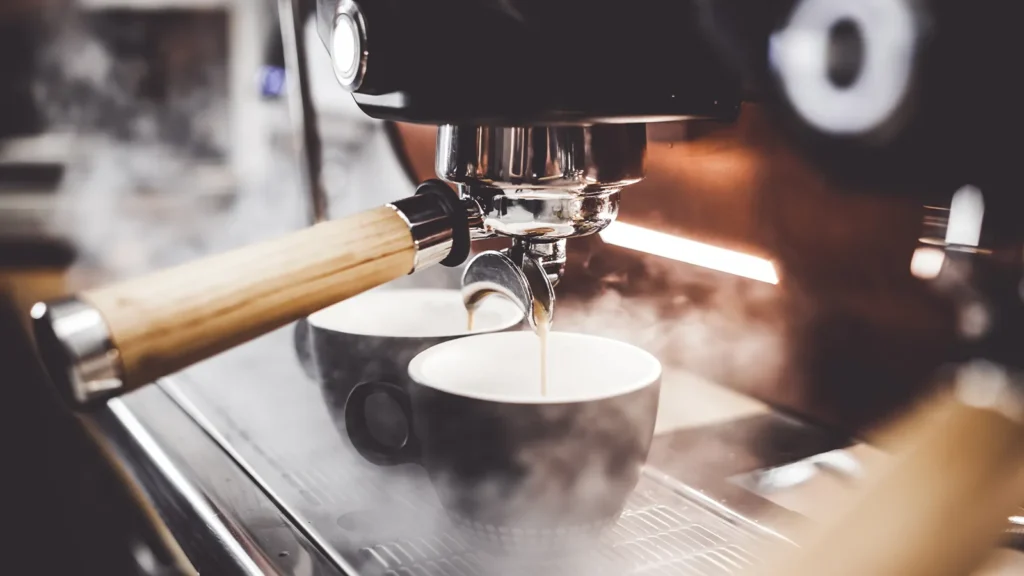Have you ever wondered why coffee tastes better when it’s prepared by someone else, even if you’re using the exact same beans and brewing equipment at home? It’s a common sentiment, and the answer lies in a fascinating blend of psychology, sensory perception, and the overall experience. This phenomenon isn’t just a figment of our imagination; there are genuine reasons why a barista’s brew often seems to hit different.
It’s more than just skill, although that certainly plays a part. The subtle nuances of coffee psychology come into play, influencing how we perceive flavour and enjoyment. From the moment we step into a café to the first sip, a multitude of factors contribute to this enhanced appreciation.
The Aura of Anticipation and the Café Experience
One of the most significant contributors to why coffee tastes better when someone else makes it is the surrounding environment and the ritual of the café experience. When you visit a coffee shop, you’re not just buying a drink; you’re investing in an atmosphere. The inviting aroma of freshly brewed coffee, the gentle hum of conversations, the clatter of cups, and the background music all combine to create a sensory rich environment. This immersive setting primes our minds to enjoy the coffee more, making us more receptive to its flavours and aromas. Our brains associate these pleasant surroundings with the coffee itself, enhancing our overall perception of its quality. This is a powerful element of coffee psychology that’s often overlooked.
Moreover, the act of going out for coffee adds a layer of anticipation. The journey to the café, the wait in line, and watching the barista at work all build up to the moment you finally receive your drink. This anticipation elevates the experience, making the coffee taste more rewarding. It transforms a simple beverage into a mini event, a moment of respite in a busy day. This psychological build up can significantly alter our perception of taste, making even an ordinary cup seem extraordinary. The removal of the effort of preparation also plays a key role, allowing for pure enjoyment.

The Skill and Precision of the Barista
While the psychological elements are strong, we cannot discount the genuine skill and precision of a professional barista. Many people find barista vs home coffee to be a stark contrast in quality. Baristas undergo extensive training to master the art and science of coffee preparation. They understand the ideal grind size for different brewing methods, the precise water temperature, the perfect extraction time, and the intricate dance of milk frothing. These details, though seemingly minor, have a profound impact on the final taste profile of the coffee. A slight deviation in any of these parameters can result in an under extracted, sour coffee or an over extracted, bitter one.
Furthermore, baristas are adept at fine tuning their techniques based on the specific beans they are using. They understand how different roasts and origins require subtle adjustments to unlock their full flavour potential. This level of expertise is difficult to replicate at home, even with high quality equipment. Their consistency in execution ensures that each cup meets a high standard, contributing significantly to why coffee tastes better in their hands. They are professionals who dedicate their time to perfecting this craft, something most home brewers simply don’t have the luxury of doing.
The Role of Sensory Disengagement
When you make coffee at home, you are intimately involved in the entire process, from grinding the beans to pouring the water. While this can be a satisfying ritual, it can also lead to a form of sensory disengagement from the final product. Your brain is occupied with the mechanics of brewing, and you might not be fully present to savour the aromas and anticipate the taste. The act of preparing the coffee can inadvertently diminish the enjoyment of drinking it.
In contrast, when someone else makes your coffee, you are completely disengaged from the preparation. You simply receive the finished product, allowing you to focus entirely on the sensory experience. Your senses are free to appreciate the aroma, the warmth of the cup, and the rich flavour profile without the distraction of having just performed the labour. This mental freedom can significantly enhance the perceived taste and enjoyment, making it a key factor in the barista vs home coffee debate. It allows for a more mindful and appreciative consumption of the beverage.

The Novelty Effect and Perceived Value
The novelty effect also plays a subtle but important role. When you consistently make your own coffee, it becomes a routine. The excitement and novelty of the experience diminish over time. However, when you visit a café, it’s often a special treat, an indulgence that breaks the routine. This inherent novelty can make the coffee seem more appealing and enjoyable. The change of pace and the unique environment contribute to an elevated perception of the drink’s quality. This is another facet of coffee psychology that contributes to the enhanced experience.
Additionally, the perceived value of the coffee is higher when you purchase it from a café. You are paying a premium for the barista’s skill, the convenience, the ambiance, and the quality of the ingredients. This financial investment, however small, can subconsciously lead you to believe that the coffee must be better. Our brains often equate higher cost with higher quality, even if the difference in actual taste isn’t significant. This psychological bias can further solidify the belief of why coffee tastes better when prepared by a professional.
The Social Aspect and Shared Experience
Coffee is often a social beverage, and the act of enjoying it with others or in a communal setting can profoundly influence its taste. The café experience is inherently social, whether you’re meeting friends, working alongside others, or simply observing the hustle and bustle of the shop. This social dimension adds an extra layer of enjoyment that is difficult to replicate at home when drinking coffee alone. The shared experience can make the coffee seem more flavourful and satisfying.
Even if you’re drinking coffee alone at a café, the presence of other people creates a sense of community and connection. This subtle social interaction can enhance your mood and, consequently, your perception of the coffee’s taste. The psychological impact of social interaction on sensory perception is well documented, and coffee is no exception. This communal aspect is a powerful, yet often unrecognised, factor in why coffee tastes better in a café setting.
The Impact of Presentation and Aesthetics
We eat and drink with our eyes first, and the presentation of a coffee drink significantly impacts our perception of its taste. Baristas are masters of presentation, creating visually appealing drinks with perfect latte art or carefully crafted layers. This aesthetic appeal enhances the overall café experience and makes the coffee seem more desirable. A beautifully presented drink immediately elevates expectations and contributes to a more enjoyable sensory experience.
At home, we often don’t put as much effort into the visual presentation of our coffee. While the taste might be similar, the lack of aesthetic appeal can subconsciously diminish our enjoyment. The care and attention to detail that baristas put into the visual aspect of the drink can make a surprising difference in how we perceive its flavour. This visual element is a strong component of coffee psychology, making the drink seem more luxurious and appealing.

The Holistic Brew
Ultimately, the answer to why coffee tastes better when someone else makes it is a multifaceted one, encompassing far more than just the beans or the brewing method. It’s a holistic experience, a synergistic combination of expert skill, environmental influence, psychological biases, and sensory engagement. The precise techniques employed by a professional barista, the inviting atmosphere of a café, the absence of personal preparation effort, the novelty of an outing, and the social dynamics all intertwine to create a superior coffee experience. This makes the barista vs home coffee debate less about simple taste and more about the entire ritual.
Next time you find yourself savouring a cup made by someone else, take a moment to appreciate not just the liquid in your cup, but the entire orchestration of factors that contribute to its enhanced flavour. It’s a testament to the power of context and perception in our everyday lives, and a delightful reminder that sometimes, the best things are those we let others create for us. The magic of a good cup of coffee lies not only in its chemical composition but in the symphony of experiences that surround it.

